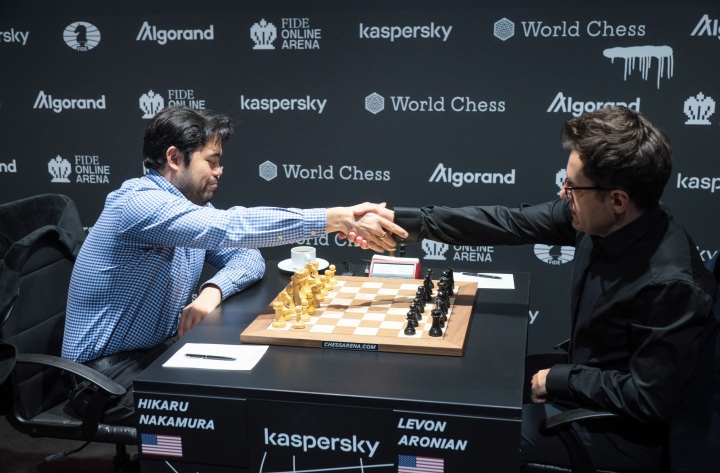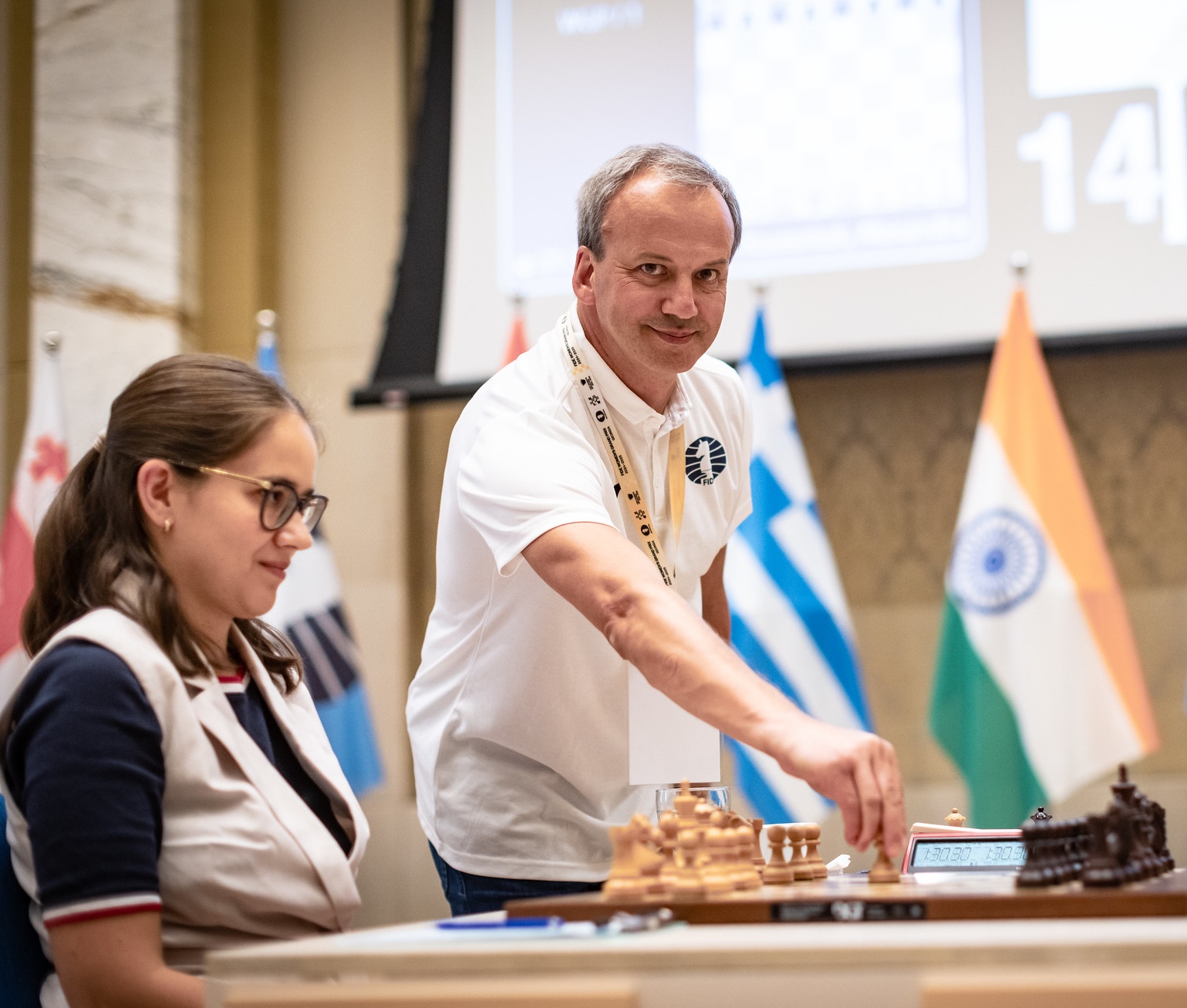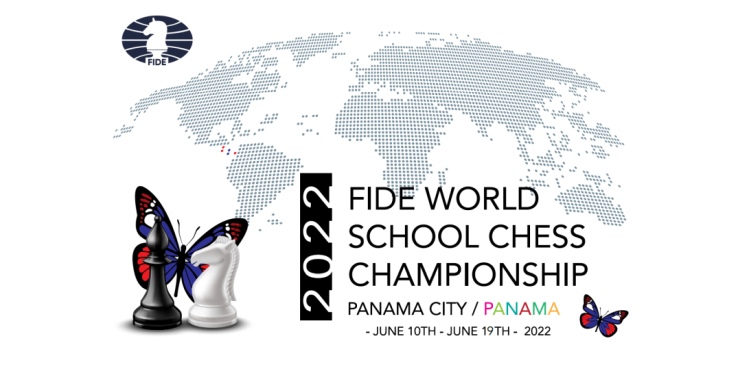
The first game between Nakamura and Aronian ends in a draw
IM Michael Rahal - Berlin, February 15th 2022 – Levon Aronian and Hikaru Nakamura have definitely been the strongest players in this event, and they are clearly well-deserved finalists. Their first game today was one of the most exciting games of the tournament, but it's not the first time they have faced each other.
According to the database, Aronian and Nakamura have played on 188 occasions, with a 103½ – 84½ score for Nakamura. However, most of these encounters were blitz and rapid, many of them in online events. In classical chess, they have battled it out 45 times, the first time in the 2005 Gibraltar Masters: Aronian has a huge 27-18 point advantage in these official games.
The first player to appear today at the venue was Hikaru Nakamura. An early starter, Hikaru has normally been arriving about ten minutes before the start of the game. His ritual is basically the same: prepare a coffee and two or three bottles of still water - he always checks the bottle cap carefully: pink for still water and blue for gas water. He also picked up a couple of chocolate bars today – an energy boost might always come in handy.

All players are body-checked with security wand metal detectors twice before the game: the first time as soon as they enter the venue and the second time after they have taken off their jackets and other belongings.
Contrarily, Levon Aronian is usually the last player to arrive and goes straight to the board. He generally stops by the arbiter's table to clean his hands with hydrological gel and then greets his opponent, takes off his blazer and gets ready for the game. The fair play officer in charge of these security checks is GM Alex Colovic from Macedonia. He was kind enough to explain to us the nuances behind his job.
Nakamura opened the game with 1.e4, and Aronian chose 1…e5, his main defensive weapon for many years. The opening was a classical Ruy Lopez: Levon wanted to play the Marshall Attack, a very aggressive option for Black but which nowadays seems to end in a draw every time it's played in an elite game.

"I am always happy just to play chess, I don't really care what opening it is, it's a great privilege. I think it was interesting, I got a nice position after Hikaru made this erroneous plan with Nh2-Ng4" were Aronian's first impressions in the post-game conference, in conversation with IM Michael Rahal, FIDE press officer for the event.
Hikaru chose 8.h3, one of the many anti-Marshall systems, which was actually Ian Nepomniachtch's choice against Magnus Carlsen in their 2021 Dubai World Championship match. Aronian also has vast experience in this line, both with White and with Black: he actually played it six times against Ding Liren two months ago in the Chess.com Speed Chess Blitz online event.
When asked after the game if the Marshall was a good opening choice for Black, Nakamura was very clear: "Everything is sound with the computers these days; it doesn't even matter what you play. I wanted to play something slow today".
Although 9…d5, in gambit style, is still a theoretical option, Aronian decided to play it safe with 9…d6. Nakamura introduced a novelty 12.Nh2 instead of playing in the center with 12.d4, a move that has been seen in more than fifty grandmaster games.

Unfazed, Aronian completed the standard manoeuvre 12…Nd8-e6 followed by 15…Ra-e8 keeping his options totally open while at the same time prophylactically preventing all of White's pawn breaks. Things were looking good for Black.
Nakamura spent a lot of time around moves 15-20: the feeling in the press room was that maybe he was uncomfortable with the position. Aronian's opening preparation has been excellent in this event, and he has played these types of structures many times before: he is one of the world's leading experts in Ruy Lopez middlegame positions.
The key moment of the game happened on move twenty-two. Nakamura went for 22.Bh6, attacking his opponent's rook but apparently sacrificing his pawn on d3. Aronian had obviously calculated this beforehand and quickly captured the pawn with his knight.
The online commentators expected Nakamura to play 23.Rd1 and win the exchange, but Hikaru smelled a rat and started thinking. Nakamura thought he was clearly still in the game: "It became very complicated. I am down a pawn, but I have this outside pawn on a5 and this pawn on b4, and it gets very tricky because the pawns on the side are more important than the pawns in the center. I was already quite confused because I thought that Levon was much better".
After a while, he opted to exchange rooks and continue the game a pawn down. He did have some positional compensation, although it was clear that Black was better: the question was how much?
Commentating online for World Chess, GM Evgenij Miroshnichenko affirmed: "If Aronian wins today, it practically means the end of the match. Hikaru really has to be very careful not to lose. It's understandable; he wants to try his chance with White, at least to apply some pressure, but somehow losing seems easier than winning".

After the game, the players discussed for a few minutes several options. In the press conference, Nakamura mentioned that "There was a critical moment in the game when Levon played 25…Qa8 where instead he could have played 25…Qb8. The whole evaluation of the position hinges on that one position. When I got my rook to b1, I was already quite optimistic".
It's always difficult to say, but maybe Aronian could have included 27…a5. Slowly but surely, Aronian's advantage slipped away. Although he was low on time, Nakamura began to play the best moves, and the game was heading towards a draw, according to computer analysis. However, it was very tricky: any bad move could immediately be fatal.
"I think that I was too optimistic," said Aronian after the game. "I thought that I could play slowly and improve my position, but then I forgot that anytime that I take on b4, he threatens to play Nd4 and make a draw in a queen endgame, so I can't play slow. At some point, I was thinking I am up on time, and I should complicate matters, but at the same time, it's the type of position that if you take too many risky decisions, you will pay for it, because if the bishop doesn't come out, you are in trouble. Hikaru played some very unpleasant ideas for me, this Kf1 and b5. At that moment, I needed to get myself together because one more inaccurate move and the gain would be gone".

In a sharp position requiring precise calculation, Aronian spotted a way to sacrifice his own passed pawn to penetrate with his queen into White's camp and force a perpetual check. The game ended in a draw, and Aronian will now have the advantage of the white pieces in the second game tomorrow afternoon. The full post-game interview with the players can be seen here.
About the Tournament
The three-tournament Grand Prix series, which will unfold from February to April, features twenty-four of the world's best Grandmasters, who will compete in two of the three events. In order to make the series more exciting and reduce the percentage of draws, FIDE and World Chess have changed the format.
This innovative approach is new for the chess world but very similar to the Super League: the first stage has four pools of four players, and the winner of each pool advances to the semifinals and then to the final.
The venue of the first leg is the World Chess Club Berlin, located at the City Centre on Unter den Linden, 26-30, and the games will be played from February 4th-17th every afternoon at 3 pm. Along with the two qualification spots for the Candidates, the event has a 150.000 euros prize fund, 20.000 euros more than the 2019 series.
All the games will be broadcasted live with expert commentary in three languages at https://chessarena.com/broadcasts/13604 More information and the full schedule can also be found on the worldchess.com website. Full pairings can be found here.
Due to COVID restrictions currently in place, only a limited number of tickets are available. Please note that the 2G+ rule applies to the event, which means that visiting the venue is only possible for those who either have a complete vaccination with EU-certified vaccine or proof of recovery and can additionally present a booster dose certificate or a negative test result.
The FIDE Grand Prix Series is brought to you by World Chess.
Leading companies supporting the FIDE Grand Prix Series 2022 include:
Kaspersky as the Official Cybersecurity Partner
Algorand as the Official Blockchain Partner
Prytek as the Technology Transfer Partner
FIDE Online Arena as the official Partner
For further questions, please contact: media@worldchess.com
Text: IM Michael Rahal





